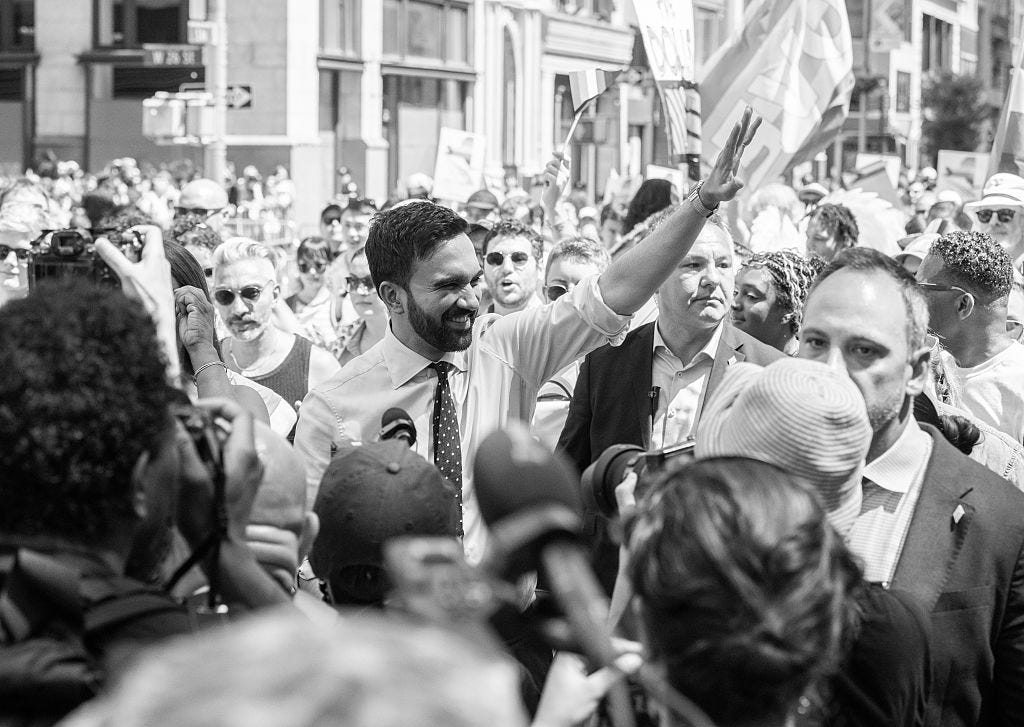The Collapse of Institutions
What Zohran's victory means
There’s a trite expression I am deeply fond of: victory has a thousand fathers, and defeat is an orphan.
In politics, this is doubly and triply true. Everyone flocks to a winner. Losers, unless they are underdogs who overperformed expectations, are scorned. Explanations are invented retroactively to explain the winner; losers are shunted away, and their supporters are left to own the loss or, more likely, pretend all along they knew what was going to happen.
These are wonderful and fascinating times for Zohran Mamdani, who transitioned from little-known assemblyman to upstart leftist mayoral contender to global celebrity in the span of a few short months. Perhaps only Alexandria Ocasio-Cortez understands what he’s experiencing right now, but her political ascendancy wasn’t so high stakes. She had won a single House district and would be responsible for nothing more than her Queens and Bronx constituents. In Washington, at twenty-eight, she was going to be a backbencher, which left plenty of time for theatrics. Congress is a performative place, with little in the way of day-to-day decision-making unless you sit in leadership. AOC could bask in her newfound celebrity, do her press tour, and cut a bunch more Instagram lives.
Mamdani is now operating on a far grander scale. He is poised to become mayor of America’s largest city, the capital of global finance, the capital of culture, and the site of the worst domestic terrorist attack in the history of the country. Eric Adams never truly felt these stakes because his approach to governing was to do as little of it as possible. Successes were found when he got out of the way, like letting his Department of City Planning Commissioner, Dan Garodnick, negotiate a massive rezoning with the City Council. It will be up to Mamdani to build out an elite administration, and this is very much possible. For now, there’s great momentum behind him.
Much has been written by many observers, including myself, on the coalition that brought Mamdani to power. Knitting together young voters, Asians, Latinos, and college-educated whites, he has charted a radical new course for politics in New York City, and perhaps America. He has also defeated, almost entirely, the institutions that defined Democratic politics in New York for the last half century. He is final proof, at the very minimum, there are almost no single entities left which he can dictate the decisions of voters: no single labor unions, politicians, editorial boards, or political clubs. Mamdani, of course, had endorsements, but it was Andrew Cuomo who swamped him in the invisible primary. It was Cuomo, too, who was the choice of establishment media. Four years ago, in the Democratic primary, the institutional choice, Adams, triumphed, but he nearly lost the race to Kathryn Garcia, who carried very few endorsements from politicians, clubs, and unions. (Her primary backer was the New York Times editorial board.) Though she was a political centrist, her rapid rise, absent the typical kingmakers, was its own proof a new New York was coming into existence and an old one was on its last legs.
For the institutions themselves, they have a choice to make: give in to Mamdani, and therefore audience capture, or resist until they are rendered irrelevant. What will they do?



